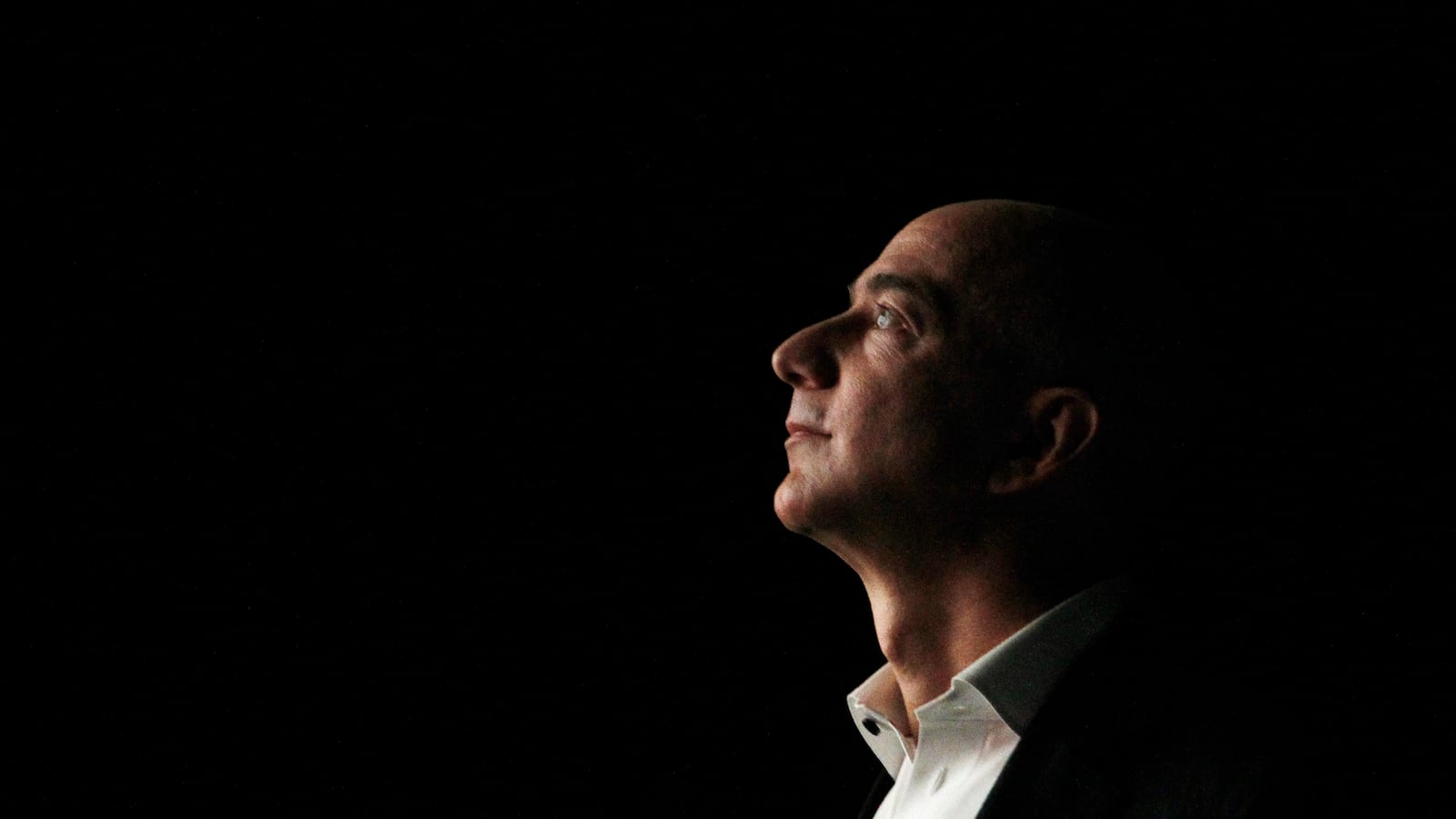
What business does a forward-thinking entrepreneur and e-book purveyor have buying up Washington’s struggling ink-and-paper newspaper?On Monday, The Washington Post made a startling announcement: Jeff Bezos, founder and CEO of Amazon.com, had just forked over $250 million in cash for the struggling news operation. Forty-nine-year-old Bezos now has a daunting task ahead of him: transforming a money-sucking paper that over the past six years has suffered a 44 percent decline in operating revenue into whatever the future of news is. But there are few people better prepared to predict what’s around the corner for such a rapidly evolving industry as the self-made and future-focused Bezos.“The Internet is transforming almost every element of the news business: shortening news cycles, eroding long-reliable revenue sources, and enabling new kinds of competition, some of which bear little or no news-gathering costs,” he wrote in a letter to the Post staff shortly after the news spread. He assured the day-to-day operation of the newspaper wouldn’t be disturbed, but change would be unavoidable. “There is no map, and charting a path ahead will not be easy. We will need to invent, which means we will need to experiment.”If purchasing a brand such as The Washington Post seems to be an uncertain venture, it’s worth a look back into the risk-taking past that shaped the illustrious paper’s new owner.Bezos, who never met his biological father, was born to a teenage bank teller in Albuquerque, New Mexico, and was soon adopted by her Cuban-immigrant husband. During his childhood, the family of five moved between New Mexico, Texas, and Florida, and the young Bezos was deeply influenced by summers spent learning how to fix and build equipment on his grandfather’s ranch in Texas. The young entrepreneur was always inventing, taking apart household items to make new creations. By high school, he had decided he wanted to be, not an astronaut, but a space entrepreneur."I think single-handedly we kept many Radio Shacks in business," his mother, Jackie, told Wired in 1999. He was a star student, going on to Princeton, and later rejecting job offers from the likes of Intel to hop on the start-up bandwagon."Jeff always wanted to make a lot of money," his high school girlfriend said in the same story. "It wasn't about money itself. It was about what he was going to do with the money, about changing the future."And he didn’t sit around thinking about it. In 1994, Bezos took his wife, left a cushy job as vice president of hedge fund D.E. Shaw, and went west."When I'm 80," he remembered asking himself in an interview with Wired. "am I going to regret leaving Wall Street? No. Will I regret missing a chance to be there at the beginning of the Internet? Yes."In Seattle, a garage served as the hub for a bare-bones book-selling site called Amazon.com, which was launched on July 16, 1995. Soon, he had a few million from investors pulled from his past life in finance, and by 1998 was commanding a $22.1 billion market presence. A year later, he was named Time magazine’s “Person of the Year.” In 2001, the company turned a profit, and today, the world’s largest Internet retailer has a market value of $122 billion. Bezos himself is worth an estimated $25.2 billion. The onetime bookseller now dominates retail across the market. But Bezos’s disregard for what Wall Street wants is notorious, even prompting business website Quartz to ask, in a recent article, “How do you compete with someone who isn’t interested in profit?”Instead, Bezos seems to value a certain type of thoughtful innovation, with an emphasis on longer goals and idea generation. The most unbelievable example of this is the “10,000 year clock” he’s building in a Texas mountain, “designed to be a symbol, an icon for long-term thinking.” And, of course, Bezos hasn’t forsaken his childhood dreams of space. In 2000, he founded Blue Origin, in the hopes of lending a hand in the development of an otherworldly society. It’s currently involved in building a rocket that can be launched and landed vertically. In 2012, a conservation team financed by Bezos unearthed the lost engines from the Apollo 11 mission on the ocean floor.In his 1997 letter to shareholders, which Bezos has included in each subsequent annual update, he wrote: “We believe that a fundamental measure of our success will be the shareholder value we create over the longterm,” and went on to stress that decisions would not be made in light of “short-term profitability considerations or short-term Wall Street reactions.”Perhaps this is the best modus operandi for someone undertaking the massive challenge of rebuilding a household name and cornerstone of American journalism. There are already signs an injection of Bezos’s inventive reputation could work wonders on the old dynastic paper. Shortly after the announcement, Washington Post shares were up 4.5 percent in after-hours trading.




